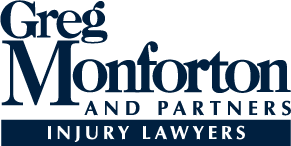Windsor injury lawyer Greg Monforton spoke to an audience at the Huron Church Holiday Inn this past Friday, June 14, about Reforming the Financial Services Commission of Ontario (FSCO) in a seminar series sponsored by Rehab First.
 Read Greg Monforton’s remarks below:
Read Greg Monforton’s remarks below:
Rehab First Seminar Series
Reforming F.S.C.O.
Is there a cure for regulatory disequilibrium?
Presentation by Greg Monforton, LL.B., C.S.
Friday, June 14, 2013
Holiday Inn Suites, Windsor, Ontario, Canada
Thank you for inviting me to speak with you today.
It is an honour to be associated with an event hosted by Rehab First, an organization dedicated to building futures and helping their clients reach their potential at home, work, school and in the community… and an organization that recognizes that the paths to recovery and life fulfillment are as individual as their clients and their needs.
My comments are strictly the expression of my own perspective. Perspectives are by their very nature inherently subjective. So I want to admit that from the start my perspective arises from two related but distinct experiences:
firstly, from having practiced law for over 30 years solely on behalf of the seriously injured, and
secondly, from the approximately 5 years I spent between 2003 to 2008 involved in government relations at Queens Park while I sat on the executive (and ultimately became the president of) the Ontario Trial Lawyers Association.
– For those of you not familiar with the Ontario Trial Lawyers Association (OTLA), it is an association of lawyers acting for plaintiffs only with 1400 members across the province and the country. The organization’s fundamental goal and mission is to ensure equal access to justice and full and fair protection of the rights of those who have suffered injury.
– So again, just to be fair, my perspective has been formed in the crucible of my experience as a past leader of that organization and as someone who has been locked in battle with the insurance industry for the past 32 years.
Today’s topic is reforming FSCO is there a cure for regulatory disequilibrium?
– If equilibrium is defined as a state in which opposing forces or influences are balanced, disequilibrium must by necessity mean a lack of balance or stability.
So the question of whether there is a cure for FSCO’s regulatory disequilibrium has to be considered within the context of FSCO’s role and function.
It must be remembered that FSCO’s regulatory role, which is mandated by legislation, is to protect the public interest and promote public confidence in a number of sectors including the insurance sector more with the administration of the statutory accident benefit dispute resolution system in effect.
– So when we talk about equilibrium at FSCO and equilibrium in the automobile insurance industry, at the bottom there are three factors that must be in equilibrium in order for the system to work properly over the long run:
Privately held for-profit insurance companies must make a reasonable return on their investment over time, taking into account that cyclicality plays a major role in insurer profitability;
Ontario drivers must pay a reasonable premium; and
Victims and survivors of automobile crashes must have barrier-free access to reasonably and individually required statutory accident benefits.
Taking all of this into account, I would submit that FSCO is more than simply in a state of disequilibrium.
It is seriously broken.
As the representative of the Ontario Rehab Alliance submitted to the April 15, 2013 automobile insurance review standing committee on general government: this fragile ecosystem is in a state of imbalance. In 2010, the Liberal government implemented wide-sweeping reforms in an effort to boost the profitability of insurers. A main component of the reform was a 70% reduction in the benefit structure available to accident benefits. Despite self-serving industry-funded reports issued (recently) to the contrary, the general statistical agency reports that only one year following the 2010 reforms, the insurance industry realized a fantastic increase in profitability of over 2 billion dollars. During the same period, the average costs per accident benefits claim plummeted from $595.00 to $292.00 per vehicle and is still falling – as the full impact of the reform begins to materialize.
Insurers have been earning near-record profits and consumers are being left to pay the highest premiums in Canada while receiving the second-lowest coverage in the country.
Now the big idea I hope you will take away not only from my comments but I suspect from the majority of those speaking today, is that FSCO is, like I just said, horribly broken. And FSCO is not meeting its mandate, and it is not performing effectively. And to re-tool FSCO to perform effectively will require a serious change in what it does, and how it does it.
– The other big idea is that FSCO’s problems are not cyclical but rather structural…with each of the reforms put in place over the past 20 or so years amounting to only short-term solutions, and short-term solutions that have not solved the fundamental underlying problems in existence.
– All of this begs the question: why? Why and how? Why (and how) did we get to where we all find ourselves today?
– I believe the fundamental cause of this problem is the very nature of the automobile insurance industry itself. Its important to remember that this is an industry whose fundamental purpose is the generation of profit. And while there is nothing wrong with the pursuit of profit, my own experience has led me to conclude that the major players in this game will never be satisfied.
Why do I say this?
because for the past 20 plus years the Insurance Bureau of Canada has used its political clout to coerce Queens Park to allow the insurance industry to escape the discipline of the free market and to load its delivery costs onto the backs of the premium paying public; and
because the insurance industry is not willing to submit itself to the discipline of the free market economy. In a free-market economy, when you make yourself rich you enrich your community. But insurers make themselves rich by making everybody else, and especially including their policyholders poor. And they do so by escaping the discipline of the free market.
Insurers don’t want free markets or a fair system of justice they want dependable profits and their surest route is by controlling the government and our civil justice system.
I suspect that CEOs and board members of these companies will call themselves champions of the free market system and strong believers of the virtue of pure unfettered capitalism and free markets. But the fact of the matter is they don’t want to play by the rules of the free market. Not by a long shot. In a free-market economy, the provider of a good or service is expected to internalize its costs and accordingly also internalize its profit. But what each and every so-called reform of the automobile insurance compensation system in Ontario since 1990 has done has resulted in enhanced profitability for the insurance industry and a progressively inferior product for the motoring public of this province. And the insurance industry on each of these occasions has accomplished this by coercing Queens Park into passing legislation that progressively enables it to more fully internalize its profits by externalizing or downloading, its costs. be it through the imposition of thresholds and deductibles on the tort side or the shrinkage of statutory accident benefits onto the shoulders of the injured they have consistently and progressively downloaded the costs of their operations upon the shoulders of the very persons the system is supposed to be set up to serve and protect.
And FSCO is the industry’s willing accomplice.
Case in point: the experts FSCO recently appointed to address the issue of the re-examination of the definition of catastrophic impairment were by in large strongly aligned with the insurance industry. And the same goes with those appointed or are in the process of being appointed to chair and occupy the minor injury guidelines review panel as well.
Second case in point: FSCO’s communiqués virtually parrot those of the insurance industry. I just read FSCO’s 61 page written submission to the Ontario standing committee on automobile insurance…it could have just as easily have been written by the Insurance Bureau of Canada. 2 small examples:
at page 24 they talk about how successive governments have had to respond to rising costs of auto insurance and re-establish an appropriate balance between price and coverage’s through various reforms
on page 25 they go on to state that costs continue to rise due primarily to the costs of litigation and court awards
Now not only are those two assertions seriously debatable in the extreme, but not even once in the 61 page report is there even one reference to the arguments advanced by whole host of stakeholders against the so called reforms that were implemented by Queens Park in 1990, 1994, 2003, 2010, and at each instance at the behest of the Insurance Bureau of Canada.
Not one word.
So over the past twenty years what we have seen is a progressive erosion of the automobile insurance product. And as you think about this bear in mind that the vast majority of corporations (not insurers) over the past twenty years have, either due to a combination of government regulation and/or competitive pressures, elevated the calibre and quality of their product while lowering its costs. Think of automobiles/think of flat screen TVs!
But in the case of insurance, prices continue to increase and the quality of the product continues to decline.
So in effect, we are dealing with an extremely serious and to some degree complex series of problems that have to be tackled head-on.
Current failures within the system:
The quantum of benefits is too low. Even though FSCO in its submissions to the standing committee in April of this year stressed how the 2010 amendments provided for up to $50,000.00 in medical and rehabilitation assistance, the fact of the matter is that under the minor injury guideline approximately 80% of all victims are only able to access $3,500.00 of those benefits. so thats a net decrease from $100,000.00 being available to all non-catastrophically injured persons prior to September, 2010, being reduced to for all practical purposes $3,500.00 for 80% of all automobile accident injury victims. Once more, as recently highlighted in a recent arbitration decision, once the victim is relegated to the minor injury guideline, it is virtually impossible to escape it, despite clear need for additional funding for rehabilitation.
Non-catastrophically but seriously injured victims are depleting their available funds of $50,000.00 at an alarming rate. Our own anecdotal experience is that victims who sustain serious non-catastrophic injuries are running out of funds in the middle of the rehabilitation, leaving them unable to resume normal lives or returning to work or school or by functioning in the community.
While rehabilitation does not need to be nor was it ever intended to be indefinite, it does need to proceed until a plateau is reached; with the plateau varying from person to person. In short, the entire AB administration and dispute resolution system is one that looks nice and neat on paper but doesn’t work out so well when applied to varying and unique circumstances of real people with real lives.
The catastrophic designation definition remains under attack, although hopefully the attack has been set back for the immediate future. It should be remembered that the catastrophic injury designation only accommodates only approximately 600 victims per year. In other words, it is designed to deal with the most seriously injured and those who are therefore the most vulnerable. However, even this category is under a microscope, based on a flawed and biased expert report panel commissioned (once again) by FSCO. If FSCO’s recommendations had been accepted by the government it would have had the effect of increasing the bar of the catastrophic designation so high as to likely cut the number of eligible victims in half.
The barriers to access to benefits remain far too high. If they weren’t, my firm would not need to have 8 employees exclusively devoted to assisting clients with their claims for statutory accident benefits. As part of the 2010 reform, the government allowed insurers to have discretion over whether to use insurer examinations, which once again are 19 times out of 20, consultants working for insurance companies. the authors of the previous regulation highlighted the fact that adjusters do not have medical training and are ill-equipped to make health care related determinations; hence the requirement for a mandatory opinion of another healthcare provider as a form of check and balance.
The 2010 reform waived this mandatory measure and instead put all of the decision-making power for victims treatment back in the hands of adjusters. Without checks and balances in the system, it is of little surprise that treatment denial rates have skyrocketed from 11% before the reform to 42% after the reform, as recently determined by a sector survey conducted by the Ontario rehab alliance.
What does experience tell us?
– In our experience, the vast majority of assessors conducting these insurer mediations are both biased and unqualified (this fact has been noted on many occasions by judges and even occasionally by arbitrators). We’ve got to remember that one point in time there were over 30,000 files in line for dispute resolution. And these are disputes with the insured persons own insurance company! This clearly demonstrates the level of dissatisfaction the victims have had with the handling of their claims.
In short, the regulatory dispute resolution system isn’t working because the system in effect is a reflection of the desires and influence of the insurance industry.
So how do these failures play out in the real world?
Our experience has been that the vast majority of mediations are for all practical purposes a complete waste of time, money and effort. Why? We typically find ourselves dealing with the same adjuster at the mediation who denied the benefit in contention in the first place and who remains unwilling to alter his or her position. Alternatively, we find ourselves dealing with someone just appointed to the file who doesn’t have a clue about what is going on and often times hasn’t even read the application. In effect, insurers are using the dispute resolution process to starve an insured into a position where they are hoping to resolve the entire statutory accident benefit file on a full and final basis. If doing so is not in the clients best interests, then the insurer more often than not refuses to explore the resolution of individual and discrete benefit entitlement issues.
The mediation backlog: thankfully, it is improving. But we have found FSCO mediators to be hit and miss, in the sense of adding any meaningful value to the system or situation. And now with the retention of outside mediators through ADR, its as if there are two parallel systems being run.
Deny, delay and deceive: as Andrew Murray, the immediate past president of OTLA so succinctly put it in his Presidents message contained in the April, 2013 edition of The Litigator, in an open letter to Premiere Wynne: I am fearful that the system of mandatory mediation of statutory accident benefit disputes, which was meant to provide affordable and timely resolution of disputes between insurer and insured, now suffers from systemic abuse by insurers which invoke a decidedly adversarial approach to the adjudication of accident benefits, best described as deny, delay and deceive.
Mr. Murrays comments have to be considered bearing in mind the incredibly important fact that the statutory accident benefit system in effect in Ontario is supposed to be simple, straight forward and easy to navigate (often without the benefit of legal counsel). and yet in the case of our firm, we employ three (and soon to be five) accident benefit specialists (these being former insurance adjusters) whose sole job is to assist our clients in the administration of their claims for statutory accident benefits and where necessary utilize the dispute resolution system to challenge the termination or refusal of the payment of statutory accident benefits.
A lack of meaningful or effective oversight of the insurance industry: – if you doubt the truth of this, just ask yourselves: why are there thousands upon thousands of FSCO disputes (that is applications for mediation) in the queue annually but only a handful of arbitration decisions released each year? The fact of the matter is that insurers are taking a scorched earth approach and only ultimately back down at the eleventh hour; this invariably being years after the initial application was commenced.
Now none of this is to say that insurance adjusters are inherently bad or incompetent people. But story after story will testify that the majority of no fault insurance adjusters are grossly overworked and the victims of the new business paradigm that you can do more with less staff and by way of remote call centres. Commonly claimants are required to deal with multiple adjusters over the course of even the most simple AB claims and they are often advised that they are not entitled to benefits or there are errors in the manner in which the benefit has been calculated; with only the small percentage of the injured public that seeks proper legal advice and representation ever learning what they are rightly entitled to receive.
The far more common experience will involve a claimant getting a call from an adjuster who is not local, who, assuming they ever reduce anything to writing, doesn’t even indicate their surname in their correspondence (Doris. l.), isn’t able to properly explain anything of consequence to them, and then mail out a daunting package of forms and FSCO’s explanation of the benefits available; with the injured then being left to try to figure out what to do next.
A short real-life story to illustrate this point: we recently were dealing with a very well-known, renowned and experienced neuropsychologist who routinely filled out treatment plans for her patients who was at the end of her own rope in terms of being able to handle her own claim for no fault benefits after having been involved in a relatively minor fender-bender. She remarked to me that she cant even begin to imagine how seriously injured people are ever able to deal with their own claims for no fault benefits.
The Cure:
So we’ve got some real problems here. And as stakeholders, we all need to dig deeper, to get to the root of the causes of these problems.
So far, the so-called reforms that have been implemented over the past twenty years have all moved in the wrong direction.slashing benefits and focusing only on the containment of costs and the profitability of the insurance industry instead of on the quality of benefits available or whether they are being fairly delivered… and all the while conveniently continuing to talk about the need to contain costs rather than examine the issue of profits.
The Road Ahead:
So the fundamental question is: can we do better? Can government do better? Can all of us do better? Of course it can / and of course we can. But to do better, both FSCO and Queens Park need to honestly and transparently become crystal clear in order to explain what is going wrong so consistently.
Now in terms of special (micro-level) reform our firm has reviewed this in detail and proposes the following:
removing the arbitrary $2,000.00 funding cap for IEs. The cap had lowered the quality of most assessments (whether on behalf of the insured or the insurer) because the medical specialists are not being compensated to review volumes of medical records, complete an assessment and prepare a proper report. All of this leads to an increase in funding denials and increases the number of disputes;
FSCO is beyond repair and should be scrapped entirely. Little if anything is accomplished prior to an arbitration pre-hearing, so scrapping the mediation process entirely (or using the pre-hearing for mediation purposes), would likely promote quicker resolution of disputes;
the biggest problem with the MIG and the incurred expense requirements that prevent the insured from receiving the treatment that would promote recovery leaves them without any funded attendant care assistance within their own home that is not being provided by a stranger employed in this field;
regarding the submission of treatment plans and the arranging of independent examinations, deadlines should be put back in place regarding when the IEs must occur and when the IE report must be completed and provided to the client;
when independent examinations are being carried out (whether for a mig or non-mig claim) it should be mandatory for the assessor to be made aware of a number of things including:
whether the treatment under the mig has already been exhausted or how much funding is left; and
What types of injuries are intended to be MIG injuries because clearly the assessor currently does not have a clue.
Insurers need to better train their adjusters;
mandatory mediation should be done away with completely. More often than not, very little gets resolved at mediation;
FSCO should not be in a position to impose new rules and procedures on an ad-hoc basis and instead should be limited to doing so on some form pre-agreed and pre-arranged recurring basis. FSCO’s ad-hoc rules only serve to compound the existing delays and feed the overall purpose of FSCO in providing insured persons with timely dispute resolution;
regarding treatment plans and independent medical exams: if the insurer has not approved the treatment plans and plans to arrange an IME, the adjuster should be doing so at the same time as the non-approval. Notice of the non-approval and the notice of examination should both be provided simultaneously, not two weeks or even months apart. When there is a delay between the two, our clients wait to hear whether or not they can receive treatment. If the IME report agrees that the recommended treatment is reasonable and necessary, that of course is wonderful, but the client has been left waiting for a long period of time to hear this, often for months. As a result they have then lost any gains that may have been made by earlier treatment;
a particular problem for Windsor-based claimants is the almost constant requirement for them to attend in London or Toronto for independent assessments. Especially for neuropsychological and psychiatrist assessments. Also insurers rely far too much on orthopaedic assessments when the insured has not sustained any orthopaedic injuries.
Suggested macro-level reforms:
At the macro-level FSCO and the government of Ontario have to move in the following direction:
Set clear goals and benchmarks:
Vague goals result in vague accomplishments. There is a lot to be said for stating our goals clearly. The specific nature of the public protection and regulatory obligations of FSCO’s mandate needs to be re-defined and clear and specific goals have to be identified to achieve its redefinition. These goals should be widely know, and progress toward their achievement should be systematically reviewed each and every year by Queens Park.
A significant by-product of setting bold but achievable goals will be to benchmark Ontarios performance vis-a-vis other provinces. If the political leadership of this province is prepared to pay more attention to these benchmarks, it will better understand the need for reform.
Mobilize Independent Expertise:
The problems facing the provision of a balanced and affordable automobile insurance product to the people of Ontario have become much more complex over time, and the political class in Toronto lacks the capacity to deal with them on its own. The problems we all face are complex, interconnected across many areas of politics and policy, and often highly technical. as such, both FSCO and queens park need to make better use of a truly balanced set of stakeholders and experts and simply stop subordinating itself to the interests of the automobile insurance industry.
End the Corporatocracy:
The fingerprints of the corrosive effect of corporate power on free market capitalism and our civil system of justice are all over FSCO: large insurance companies, no matter how well intentioned, should not be running our provincial government or the civil justice system it has created and is charged with administrating.
Conclusion
In short, we need to reclaim our civil justice system in this province. And an essential component of the achievement of that goal is a more fair and balanced approach to the regulation of the automobile insurance sector.
It was over 150 years ago in the midst of the American civil war when president Abraham Lincoln said I have two great enemies, the southern army in front of me and the bankers in the rear (he could just as well have been talking about insurers).he went on to say of the two, the one at the rear is my greatest foe.
For far too long ignorance, misinformation and the corporate clout of the insurance industry have handicapped real progress in helping the people of our province who have been injured in motor vehicle collisions overcome the medical and financial consequences of their injuries. And thats because for far too long rhetoric has been confused with reality. And all along the way, FSCO has been the industry’s willing accomplice, consistently contributing to both the rhetoric and to the miss-information.
FSCO has to either be seriously fixed or dismantled. Those are really the only two options. The achievement of progress and a re-establishment of balance will be an arduous challenge to say the least. It will not be easy. it will take a great deal of courage, hard work, political will and persistence, not to mention the integrated efforts of a large number of stakeholders with sometimes varied and even conflicting interests.
But do it we must.
All of you have an incredibly important role to play in this struggle, in this process,. in this battle.
Were meeting here in an hour of challenge. But we share a common purpose. As such, Im asking for your help. Not for your money, but rather for your voice. Queens Park needs to know that neither the stakeholders in this crucial issue nor the general public are going to stand idly by and witness the continued denigration of the rights of those seriously injured in motor vehicle collisions across our province.
As such, I strongly urge you to keep the pressure on Queens Park. At a minimum, I ask you to contact your MPPs to voice your concerns.
Our MPPs need to know that FSCO is not working, that the entire statutory accident benefit administration and dispute resolution system is not working, and of the detrimental impact of allowing the status quo to continue will have upon the health, well-being and futures of the people of this province.
And the time to begin is now.
Thank you very much.




